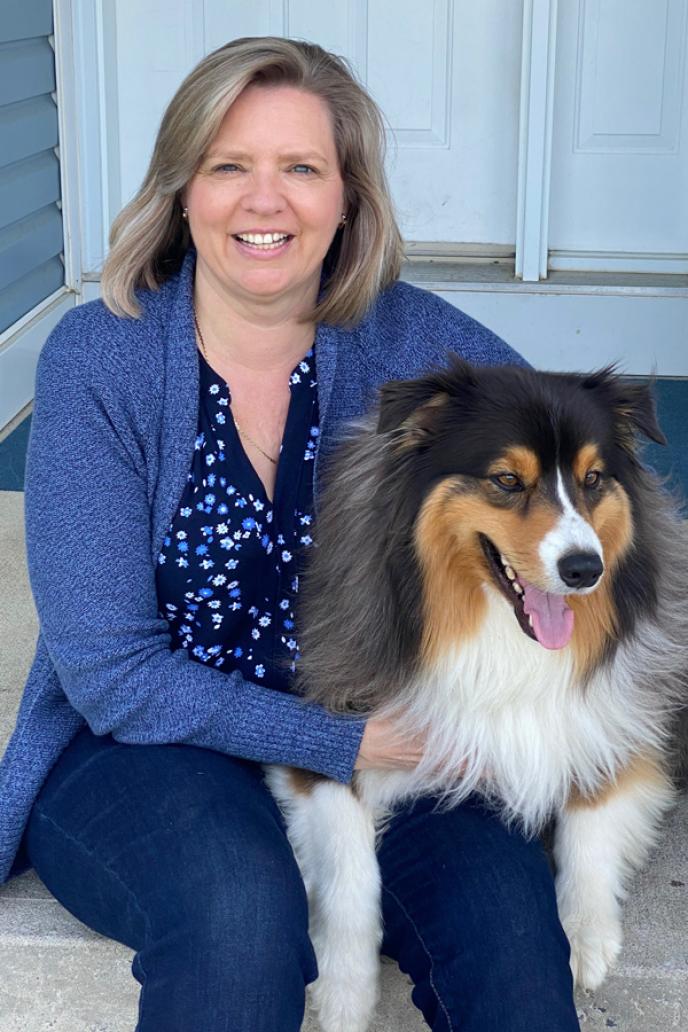“There are a lot of spectacular things being done in Brockville, routinely,” says Fiona Jager, a clinical nurse consultant and one of the newest members of the nursing team at the Brockville Mental Health Centre (BMHC). “The FTU and the STU are both remarkably challenging practice environments and there is some pretty awesome work being done, particularly by nurses.”
The Forensic Treatment Unit (FTU) provides specialized clinical services in assessment, treatment, rehabilitation, and community reintegration of individuals who, according to the courts, may be unfit to stand trial or not criminally responsible on account of disorder.
The Secure Treatment Unit (STU) provides secure assessment, treatment, and discharge planning to adult male offenders who have been provincially sentenced and have been diagnosed with a mental illness. Teams provide specialized assessment and treatment in the areas of sex offending, dysfunctional anger, trauma disorders and a range of psychosocial rehabilitation modules that address individual resident needs.
So much of what we know about COVID-19 today has changed since the early days of the pandemic. One of the things Jager admires about her colleagues is how they’ve been able to roll with the punches regarding new and evolving information about the virus and adapt to new protocols at work, all while also taking care of their own families. “It’s is nothing short of remarkable.”

Jane Benson is a registered nurse at the STU. She’s held many different roles over her 30+ years and now works as a nurse unit facilitator in the STU’s anger management unit. She recalls how nurses shouldered the extra burden for the residents (a.k.a. her “fellas”) early on in the pandemic. “We were always worried about our fellas here, with their anxieties and everything,” says Benson. “At the very beginning we had to work a lot to alleviate their fears and their fears for their family members. The staff here did a really good job of managing not only the policies and procedures we all had to do, but also the anxieties of our patients and our peers.”
It’s been a challenging year for anyone in health care and Benson credits her colleagues’ skills, experience, and professionalism for helping staff and clients to get through it.
“Everybody's coming to work, everybody's pulling together. Everybody's working as a team,” she says. “I am very proud to work here, and I am very proud to be part of the team that does this work.”
There are many nurses who continuously answer the call; some are also using their creativity and talents to go above and beyond their usual nursing duties. Kyle Summers encourages clients to practice their musical talent by participating in guitar duets or playing guitar while clients sing. Hanna Mullin has been using her skills as a yoga instructor to teach the clients about yoga and how it can be used as a healthy coping strategy. The clients are very grateful to Kyle and Hanna for promoting their leisure interests as well as creating a positive therapeutic environment for them. These extra activities promote good mental health as well as provide more things to do on the unit, which is particularly helpful during pandemic-related restrictions.
If anything, the pandemic has brought to light the unwavering commitment of nurses who have been going above and beyond for residents at BMHC.
“We are incredibly grateful and proud of our nurses,” says Dr. Sanjiv Gulati, associate chief at BMHC. “The compassion and the extra mile they go to care for their clients and supporting their colleagues is nothing short of commendable. Their leadership, loyalty, critical thinking and professionalism has been a bright and steady light for us all, especially during this very challenging time. We simply couldn’t do without them.”
May 10-16 is National Nursing Week. This year’s theme is #WeAnswerTheCall and was developed by Canadian Nurses Association to showcase the many roles that nurses play in a patient’s health-care journey.

